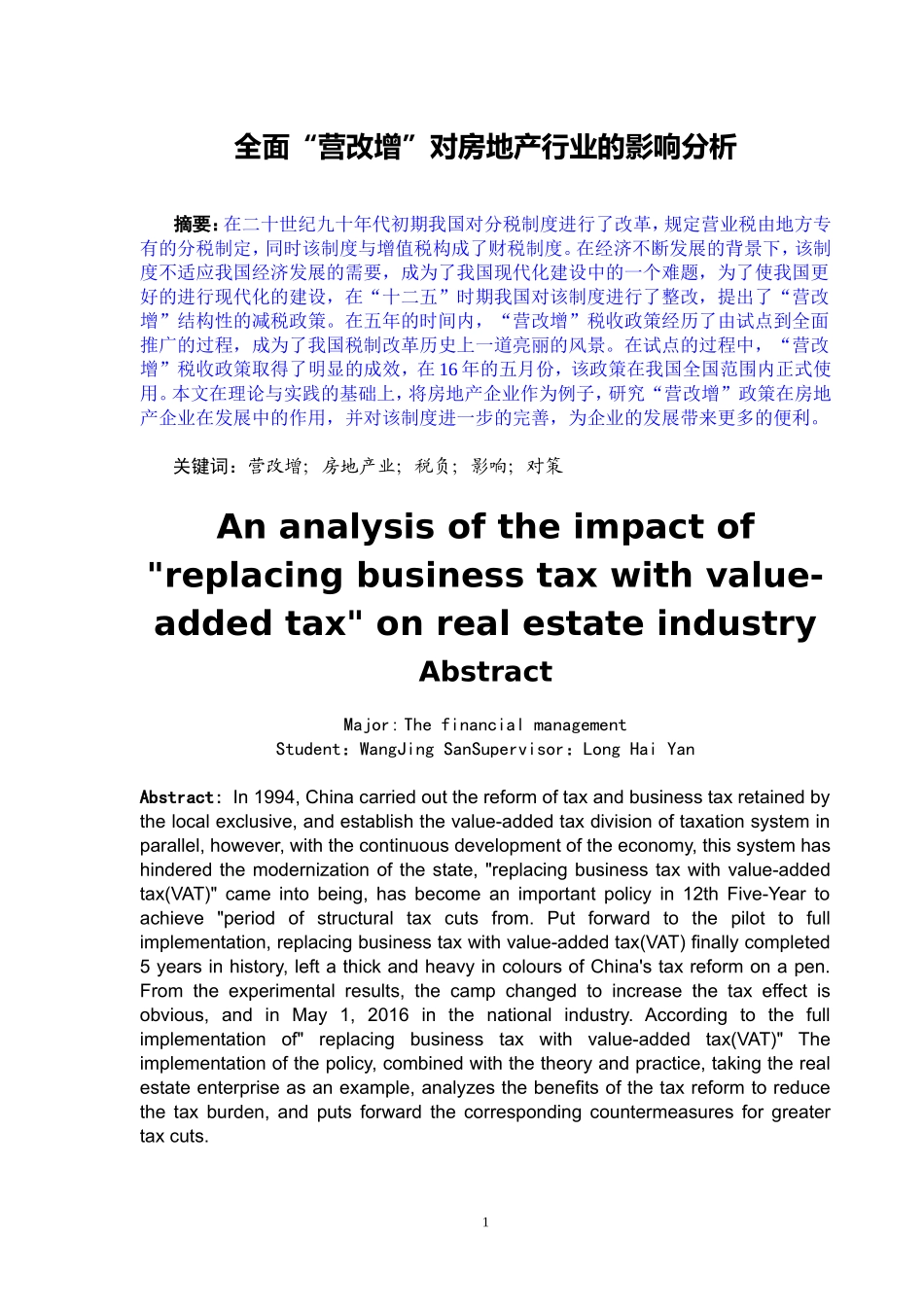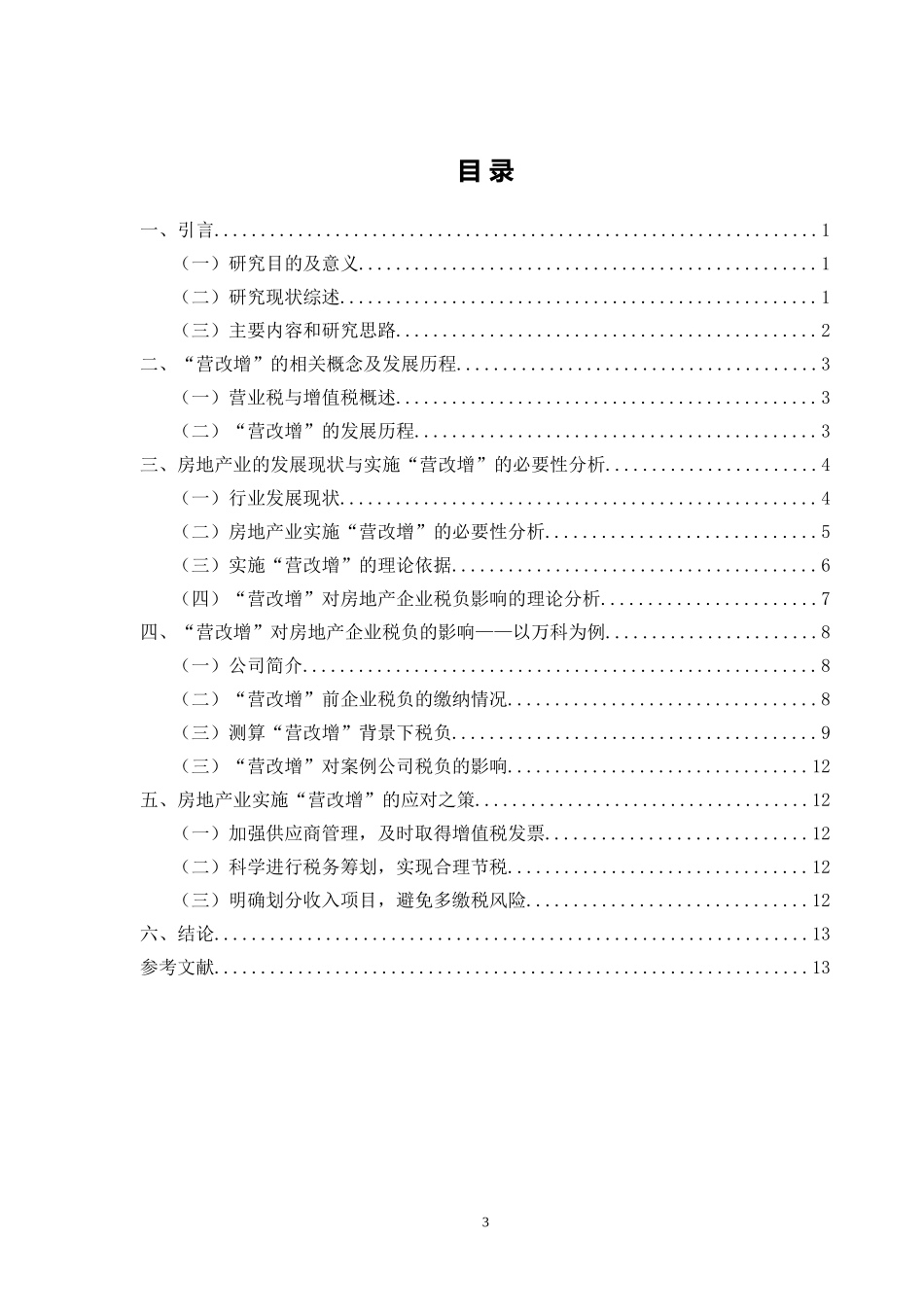1全面“营改增”对房地产行业的影响分析摘要:在二十世纪九十年代初期我国对分税制度进行了改革,规定营业税由地方专有的分税制定,同时该制度与增值税构成了财税制度。在经济不断发展的背景下,该制度不适应我国经济发展的需要,成为了我国现代化建设中的一个难题,为了使我国更好的进行现代化的建设,在“十二五”时期我国对该制度进行了整改,提出了“营改增”结构性的减税政策。在五年的时间内,“营改增”税收政策经历了由试点到全面推广的过程,成为了我国税制改革历史上一道亮丽的风景。在试点的过程中,“营改增”税收政策取得了明显的成效,在 16 年的五月份,该政策在我国全国范围内正式使用。本文在理论与实践的基础上,将房地产企业作为例子,研究“营改增”政策在房地产企业在发展中的作用,并对该制度进一步的完善,为企业的发展带来更多的便利。关键词:营改增;房地产业;税负;影响;对策An analysis of the impact of "replacing business tax with value-added tax" on real estate industryAbstractMajor: The financial managementStudent:WangJing SanSupervisor:Long Hai YanAbstract: In 1994, China carried out the reform of tax and business tax retained by the local exclusive, and establish the value-added tax division of taxation system in parallel, however, with the continuous development of the economy, this system has hindered the modernization of the state, "replacing business tax with value-added tax(VAT)" came into being, has become an important policy in 12th Five-Year to achieve "period of structural tax cuts from. Put forward to the pilot to full implementation, replacing business tax with value-added tax(VAT) finally completed 5 years in history, left a thick and heavy in colours of China's tax reform on a pen. From the experimental results, the camp changed to increase the tax effect is obvious, and in May 1, 2016 in the national industry. According to the full implementation of" replacing business tax with value-added tax(VAT)" The implementation...












